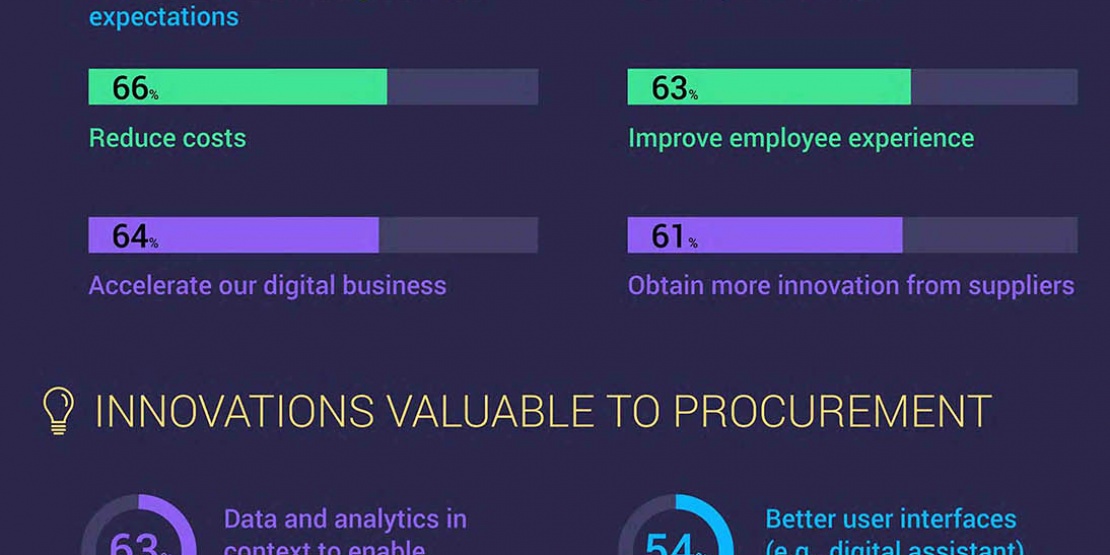
New technologies are transforming businesses, what they do and how they do it, while constantly raising the bar when it comes to customer satisfaction. At the beginning of 2018, Ivalua, an e-procurement solution provider, commissioned Forrester Consulting to conduct a study on the status of digital transformation in procurement*. Take a look at the infographic to find out more about the study's key findings.
1. Procurement Officers face several roadblocks to more strategic decision-making
For them, these challenges include the limited availability of relevant information, poor data quality and the amount—sometimes excessive—of operational and manual tasks, all of which have an equal effect on strategic decision-making.
2. Appetite for Artificial Intelligence (AI) in procurement is growing
There is great potential for using Artificial intelligence in procurement. Thanks to data analysis in particular, this solution can be used for both complex and repetitive tasks, in a more efficient and cost-effective method. As a result, procurement officers will be able to make relevant decisions quicker.
No less than 55% of respondents are planning major investments in Artificial Intelligence over the next two years.
3. Modern software paves the way for intelligent procurement
Procurement officers are primarily anticipating two major advances as a result of new technologies:
- Data and analytics used for making smarter decisions
- Better user interfaces (e.g. digital assistants)
4. Data quality improvement be coincide with the acquisition of technologies.
The vast majority of respondents believe that poor data quality may limit the extent to which Artificial Intelligence can be used. For them, the biggest challenges around data are:
o Inability to access relevant data (44%)
o Lack of normalisation (43%)
o Inaccurate data (41%)
> Read the complete study to find out more
*Survey of 433 procurement officers and leaders across the world between January and May 2018








